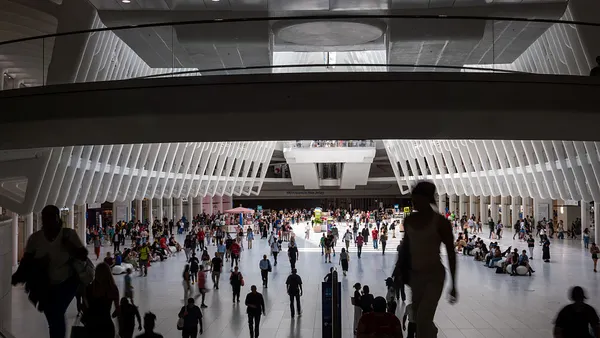Dive Brief:
- In a 2022 Hue report, 82% of HR professionals said their industry does a good job of implementing diversity-related initiatives; meanwhile 84% of employees noted "a lack of meaningful progress" regarding equity for BIPOC over the past six months. The survey was conducted December 2021 to January 2022, with about 3,000 participants in the HR, finance, operations, marketing, communications and design industries.
- Notably, 40% of Black and Indigenous employees and workers of color said they experienced workplace discrimination related to their race or ethnicity. Likewise, about one-third of BIPOC told Hue they don't feel empowered to speak out against workplace discrimination they've witnessed or experienced based on their racial or ethnic background.
- Further, almost 30% of BIPOC employees reported they experienced job loss due to race-related discrimination. Compared to their White peers, Indigenous Americans, Latinx Americans and South Asian Americans were three times as likely to lose their job due to racial or ethnic discrimination. Black employees were four times as likely.
Dive Insight:
Prior to Hue's report, "A State of Inequity: Unsafe. Unheard. Unvalued," HR researchers observed that summer 2020's corporate antiracism conversations, following Breonna Taylor and George Floyd's deaths, have rung hollow two years later.
In a February 2021 report on DEI issues and impact, Perceptyx reported that 76% of companies surveyed had no diversity or inclusion goals. Only a third (32%) of respondents required any form of diversity training. Twice as many companies (75%) addressed diversity as more of a compliance issue, excluding DEI from their learning and development strategy. As Perceptyx's report put it, "Roughly 80% of companies are just going through the motions and not holding themselves accountable."
Almost 60% of companies surveyed by Challenger, Gray and Christmas said they were actively working to develop diverse talent. About 26% of employers in the March 2021 report said they recently recognized and promoted diverse talent. Similarly, 82% of respondents in an HR Policy Association survey said diversity and inclusion would be a top area of concern at their organizations. Likewise, 71% of respondents in this April 2021 report said cultural transformation would be of great importance.
By June, corporate America was revealed to be either slow on the uptake or engaging in performative allyship. Touching once more on the gap between strategy and action, Salary.com found a 13% gap between employers' intentions and reality of their DEI practices.
Looking at the 2022 Hue report, the real-word repercussions of "going through the motions" are clear: Black and brown employees, already coping with racial trauma, are feeling unsafe at work.
Psychologists and sociologists have long documented the effects of racial trauma on people of color and burnout on employees. The Hue report touches on this: 47% of Hispanic respondents, 47% of East Asian and Pacific Islander respondents, and 41% of Black respondents said they're experiencing workplace burnout and exhaustion. These rates topped that of White respondents to Hue's survey.
The takeaway is clear: Check-the-box approaches to diversity, equity and inclusion are failing employees of color.













